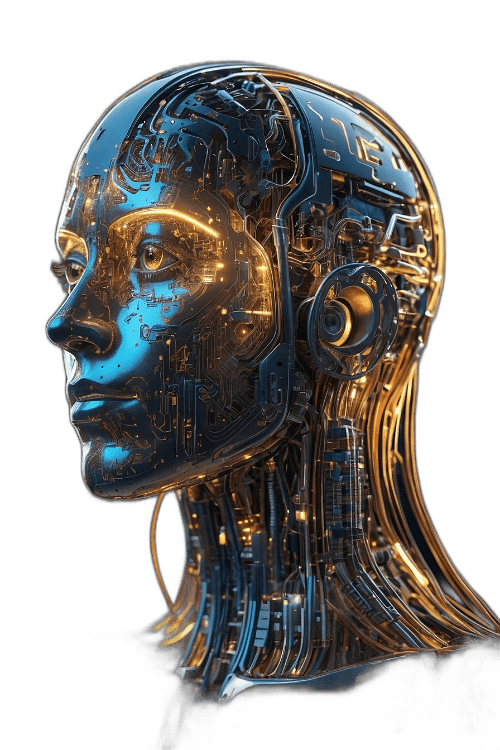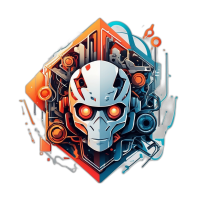Artificial intelligence (AI) is no longer just a futuristic concept; it’s here, and it’s transforming industries across the globe. By combining AI with automation, businesses can significantly improve productivity, reduce errors, and enhance customer experiences. This trend, known as AI-powered automation, is rapidly becoming an essential part of business strategies for companies aiming to thrive in a digital-first world.
What Are AI-Powered Automation Tools?
AI-powered automation tools are software solutions that utilize artificial intelligence to automate tasks traditionally performed by humans. These tools can analyze data, make decisions, and execute tasks without requiring human intervention. They are designed to handle repetitive tasks, identify patterns, and streamline workflows, making them ideal for processes like data entry, customer support, marketing, and more.
For example, a customer service chatbot powered by AI can answer inquiries, assist with common issues, and provide recommendations, reducing the need for manual input.
The Benefits of AI Automation
AI-powered automation tools bring numerous benefits to businesses:
- Enhanced Efficiency: AI tools can perform tasks faster and more accurately than humans, freeing up valuable time and resources.
- Cost Savings: By automating routine tasks, businesses can reduce labor costs and allocate resources more effectively.
- Better Decision-Making: AI analyzes data to provide insights that support informed, data-driven decisions.
- Improved Accuracy: Automation reduces human error, which is particularly valuable in data-sensitive tasks.
- Scalability: AI solutions can scale with your business, making it easy to handle increased demand as you grow.
Key Industries Leveraging AI Automation
AI-powered automation is versatile and can be applied in various industries. Here are a few examples:
- Healthcare: AI automates administrative tasks, patient scheduling, and even medical image analysis.
- Retail: Personalized product recommendations and automated inventory management are made possible with AI.
- Finance: AI tools assist with fraud detection, risk assessment, and portfolio management.
- Manufacturing: Robots powered by AI handle assembly lines and quality control, reducing human error.
How AI Improves Workflow Efficiency
One of the main advantages of AI-powered automation tools is their ability to improve workflow efficiency. AI-driven solutions streamline tasks that are time-consuming or repetitive, allowing employees to focus on higher-level responsibilities.
For instance, in an office setting, AI can automate processes like email management, data entry, and scheduling. This not only increases productivity but also reduces the risk of burnout by handling routine tasks.
Enhancing Customer Service with AI
Customer service is one of the areas where AI-powered automation has made the most impact. AI chatbots, virtual assistants, and automated response systems can handle customer inquiries 24/7, providing fast, accurate responses. This improves customer satisfaction by reducing wait times and ensures consistent, high-quality service.
Imagine a virtual assistant that can not only answer common questions but also analyze customer data to provide personalized support. AI-driven customer service solutions are not only efficient but also foster stronger customer relationships by personalizing interactions.
AI in Marketing: Smarter, Personalized Campaigns
Marketing is another area where AI-powered automation tools shine. AI-driven marketing platforms analyze consumer behavior to create personalized campaigns. This means that businesses can deliver targeted messages to the right audience at the right time, maximizing engagement and conversion rates.
AI-powered tools can manage everything from email marketing campaigns to social media advertising, making marketing efforts more efficient and impactful. By automating tasks like customer segmentation and content optimization, businesses can reach their audience in a more meaningful way.
AI-Powered Data Management
Data is one of the most valuable assets for businesses, and AI can help manage it more effectively. AI-powered automation tools are capable of analyzing large data sets quickly, identifying trends, and providing actionable insights. This makes it easier for businesses to make data-driven decisions and optimize their strategies.
For example, AI tools can analyze customer feedback from various sources, such as social media, surveys, and reviews, to identify common issues and preferences. This enables businesses to respond to customer needs proactively.
Cost Efficiency and ROI with AI Tools
Investing in AI-powered automation tools can lead to substantial cost savings. By automating manual tasks, businesses reduce the need for additional staffing, which can be a significant expense. Moreover, AI-driven tools can improve accuracy and efficiency, reducing costs associated with errors and rework.
While there may be an initial investment, the long-term benefits—such as increased productivity, enhanced customer satisfaction, and improved ROI—make AI automation tools a worthwhile addition to any business strategy.
Examples of Top AI-Powered Automation Tools
Here are some of the top AI-powered automation tools available today:
- ChatGPT (OpenAI): A chatbot that provides human-like interactions for customer support.
- HubSpot: An AI-powered CRM tool that automates marketing, sales, and customer service processes.
- UiPath: A tool that automates repetitive processes in fields like finance, HR, and IT.
- Salesforce Einstein: AI features within Salesforce that provide predictive analytics and personalized recommendations.
These tools are widely used and offer robust AI-powered automation features that cater to various business needs.
Getting Started with AI-Powered Solutions
Starting with AI-powered automation can seem daunting, but it’s manageable with the right approach. Begin by identifying the areas in your business where AI can make the most impact. Evaluate your current processes and determine which tasks can be automated.
Once you’ve identified potential use cases, research AI solutions that cater to your needs. Many platforms, such as KratosLab, offer customizable AI tools that can be tailored to fit your specific workflows and goals.
Challenges and Considerations
While AI-powered automation tools offer tremendous benefits, there are challenges to consider:
- Cost: Implementing AI solutions requires an initial investment, which can be a barrier for small businesses.
- Employee Resistance: Some employees may worry that AI will replace their jobs. To ease these concerns, communicate the benefits of AI and emphasize that it will support—not replace—them.
- Data Privacy: AI tools often process large amounts of data, so it’s important to ensure that these tools comply with data privacy regulations.
- Integration: AI solutions need to integrate smoothly with existing systems. Poor integration can hinder workflow efficiency rather than improve it.
The Future of AI-Powered Automation
As technology advances, AI-powered automation tools will become even more sophisticated and accessible. In the future, we can expect to see AI automation tools that are more intuitive, more cost-effective, and more deeply integrated with every aspect of business operations. From predictive analytics to advanced decision-making tools, AI is poised to redefine what’s possible for businesses of all sizes.
Conclusion
AI-powered automation tools are transforming the business landscape, offering innovative solutions that improve efficiency, reduce costs, and enhance customer interactions. By automating routine tasks and providing valuable insights, these tools enable businesses to focus on what matters most—growing and serving their customers.
Whether you’re a startup or an established enterprise, AI-powered automation is a worthwhile investment that can help you stay competitive in today’s digital world. Embracing AI today positions your business for future success, enabling you to work smarter, not harder.
Frequently Asked Questions
1. What are AI-powered automation tools?
AI-powered automation tools use artificial intelligence to automate tasks, streamline workflows, and improve efficiency in various business processes.
2. How can AI-powered automation tools benefit my business?
They enhance efficiency, reduce costs, improve accuracy, and provide valuable data-driven insights, helping businesses make informed decisions and improve customer satisfaction.
3. Are AI automation tools suitable for small businesses?
Yes, many AI-powered tools are scalable and can be tailored to fit the needs of small businesses, providing valuable benefits without requiring a large budget.
4. What challenges should I consider when implementing AI automation?
Common challenges include initial costs, employee resistance, data privacy concerns, and integration with existing systems.
5. What’s the future of AI-powered automation?
AI-powered automation will become more advanced, intuitive, and accessible, helping businesses of all sizes leverage AI for maximum productivity and

